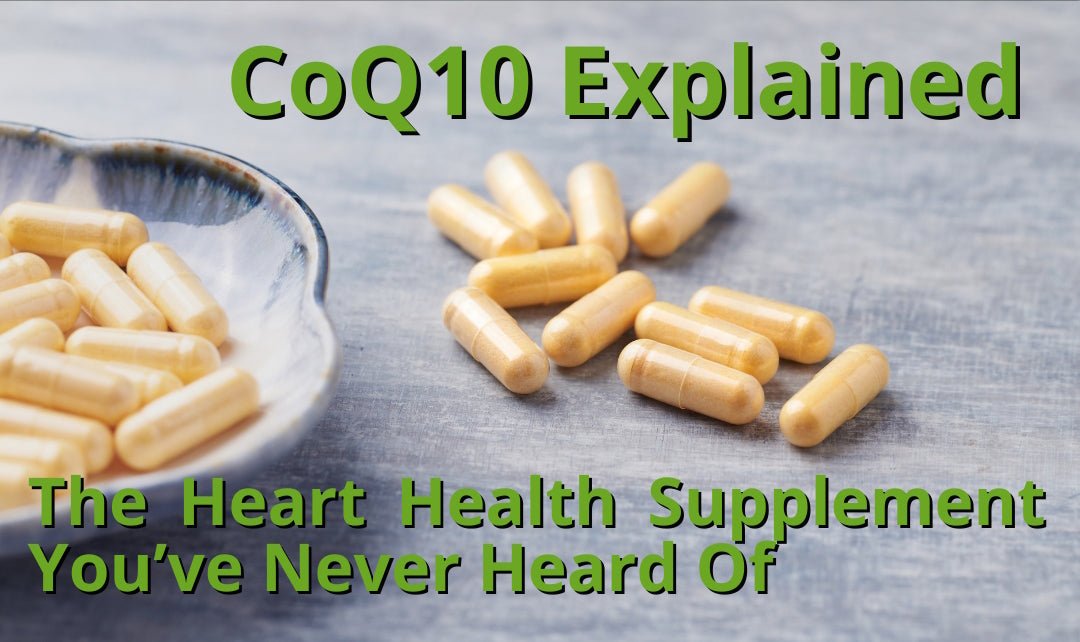CoQ10 Explained: The Heart Health Supplement You’ve Never Heard Of

In the realm of dietary supplements, CoQ10 may not be as widely recognized as some other popular supplements, but it holds significant importance, especially for heart health. This powerful antioxidant is essential for the production of energy within our cells and plays a crucial role in maintaining a healthy cardiovascular system.
What is CoQ10?
Coenzyme Q10, commonly referred to as CoQ10, is a naturally occurring compound found in every cell of the body. It assists in generating energy by producing adenosine triphosphate (ATP), which is vital for powering cellular functions. CoQ10 also acts as a potent antioxidant, protecting cells from damage caused by harmful molecules known as free radicals.
Sources of CoQ10
Our bodies naturally produce CoQ10, but its levels can diminish with age or due to certain health conditions. In addition to supplementation, CoQ10 can be obtained through dietary sources. It is prevalent in foods such as fatty fish (like salmon and tuna), organ meats (like liver), and whole grains. However, the amount of CoQ10 in these foods may not be sufficient to significantly boost the low levels in the body, which is where supplements come into the picture.
CoQ10 and Heart Health
CoQ10 has been extensively studied for its impact on heart health. As an essential component in the energy production process of cells, it supports the heart muscle's function and efficiency. Several studies have indicated that CoQ10 may help in the management of heart conditions like heart failure and high blood pressure. It is considered beneficial for improving symptoms, enhancing exercise tolerance, and reducing the likelihood of subsequent cardiac events in patients with heart failure.
Moreover, CoQ10 has been investigated for its ability to reduce oxidative stress, a condition that contributes to atherosclerosis (hardening of the arteries), which is a risk factor for heart attacks and strokes. By limiting oxidative damage, CoQ10 can support overall arterial health.
Additional Health Benefits
Beyond its heart health benefits, CoQ10 may support a variety of other health functions. It has been suggested to aid in reducing muscle fatigue, enhancing athletic performance, and potentially improving symptoms of certain neurological disorders due to its antioxidant properties. Additionally, some studies suggest CoQ10 can assist in maintaining skin health by reducing the visible signs of aging.
Who Should Consider CoQ10 Supplements?
While a decision to start any supplement should be made in consultation with a healthcare provider, certain groups might particularly benefit from CoQ10 supplementation. These include older adults with declining natural CoQ10 levels, individuals on statin medications (as these can reduce CoQ10 levels), and those with specific chronic health conditions like heart disease or neurodegenerative disorders.
Conclusion
Though it might not be as well-known as vitamins C or E, CoQ10 is a vital player in our body's energy production and antioxidant defense. Its potential to improve heart health and support other bodily functions makes it a supplement worth considering for those seeking to enhance their overall well-being.
Always remember to consult with a healthcare professional before adding any new supplement to your routine to ensure it aligns with your specific health needs and conditions. CoQ10 might just be the heart health secret you’ve been missing out on!
Maintaining a healthy heart and optimal cardiovascular health is a critical goal in preventing and managing cardiovascular diseases such as coronary heart disease and congestive heart failure. Recent clinical trials have explored various interventions, ranging from blood pressure medications and blood thinners to nutritional supplements that aim to improve heart function and overall health.
Research indicates that supplementing with omega-3 fatty acids, particularly from a fish oil supplement, can have beneficial effects on cholesterol levels, reducing bad cholesterol while potentially raising good cholesterol. Omega-3 fatty acids are also known to support blood vessel health, mitigating the risk of essential hypertension and improving the development of a healthy heart.
One notable area of study is the role of nutritional supplements in cellular energy production, which is crucial for maintaining adequate energy levels and supporting physical performance. Coenzyme Q10, recognized for its antioxidant activity and role in oxidative phosphorylation, has been investigated for its effects on cellular-level energy production. Clinical trials suggest that coenzyme Q10 may help in the management of chronic heart failure by enhancing mitochondrial function and improving cardiac function, thus meeting the heart's energy requirements and possibly reducing symptoms like muscle pain, muscle aches, and muscle weakness.
A supplement routine that includes coenzyme Q10 may also offer potential benefits in treating oxidative stress-related cellular damage, by harnessing its antioxidant activity to protect cellular structures and maintain blood levels of vital nutrients. Furthermore, achieving balanced blood sugar levels and managing systolic blood pressure can aid in the treatment of hypertension, thus preventing the onset of adverse effects associated with the condition.
However, it is essential that individuals considering nutritional supplements consult healthcare professionals to avoid counter supplements and adverse interactions, especially when taking blood pressure medications or managing conditions like chronic heart failure. Maintaining adequate levels of essential nutrients while monitoring physical responses can optimize health outcomes and contribute to sustained cardiovascular health.





